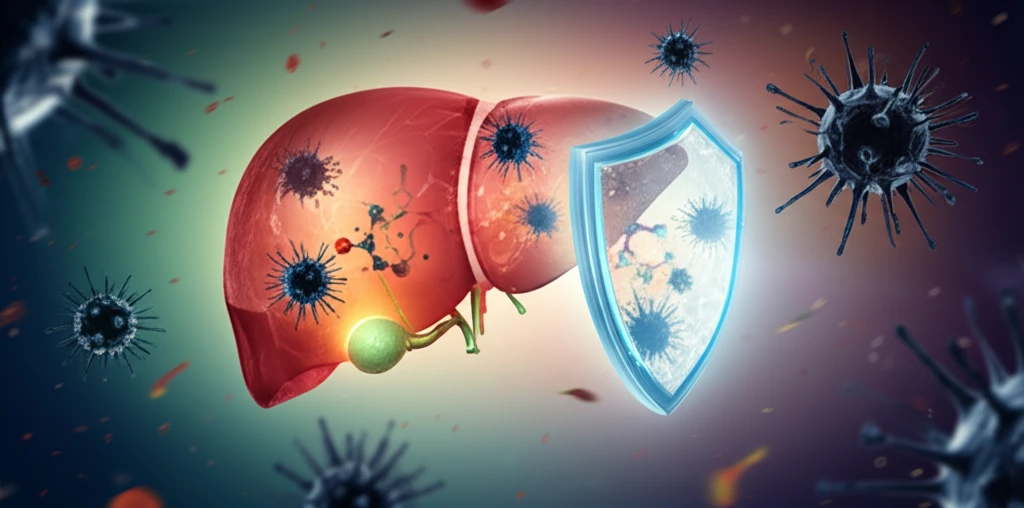
Unlock Liver Health: How ALR Can Boost Doxorubicin's Cancer-Fighting Power
"Emerging research reveals how augmenter of liver regeneration (ALR) enhances chemotherapy effectiveness in hepatocellular carcinoma (HCC) by targeting key drug resistance mechanisms. Discover how this could revolutionize liver cancer treatment."
Hepatocellular carcinoma (HCC), a prevalent and aggressive form of liver cancer, poses significant challenges to both physicians and patients due to its high chemoresistance. Traditional chemotherapy often proves inadequate, necessitating the exploration of novel therapeutic strategies.
Augmenter of liver regeneration (ALR), originally recognized for its role in liver repair, is now emerging as a promising agent in cancer treatment. While initially known as 'hepatic stimulator substance', ALR has demonstrated the ability to inhibit epithelial-mesenchymal transition (EMT) in HCC, a critical process in cancer metastasis. This suggests a broader role for ALR in managing HCC.
Recent research has unveiled that ALR can significantly enhance the effectiveness of doxorubicin, a common chemotherapy drug, against HCC. By modulating key cellular mechanisms, ALR helps to overcome drug resistance, paving the way for more effective cancer treatment.
ALR's Impact on Chemoresistance

Chemoresistance in HCC is a formidable obstacle, making it difficult to achieve lasting remissions with standard chemotherapy. Cancer cells often develop mechanisms to evade the effects of drugs, reducing their efficacy and allowing the disease to progress. One significant mechanism is the overexpression of ATP-binding cassette (ABC) transporters, which actively pump drugs out of the cells, reducing their intracellular concentration.
- Reduced Drug Efflux: ALR helps prevent cancer cells from pumping out doxorubicin, ensuring a higher concentration of the drug inside the cells.
- Enhanced Intracellular Accumulation: By inhibiting ABCB1 and ABCG2, ALR promotes the buildup of doxorubicin within cancer cells, amplifying its effectiveness.
- Improved Chemosensitivity: ALR makes HCC cells more sensitive to doxorubicin, increasing the likelihood of successful treatment outcomes.
- AKT/Snail Pathway Inhibition: ALR modulates the AKT/Snail signaling pathway, further contributing to the downregulation of ABCB1 and ABCG2.
Future Directions
The findings suggest that ALR holds significant promise as a novel chemotherapeutic agent against HCC. Its ability to modulate drug resistance mechanisms and enhance the efficacy of existing treatments could revolutionize liver cancer therapy. Future research should focus on optimizing ALR's use in combination with other chemotherapeutic drugs and exploring its potential in clinical trials.
